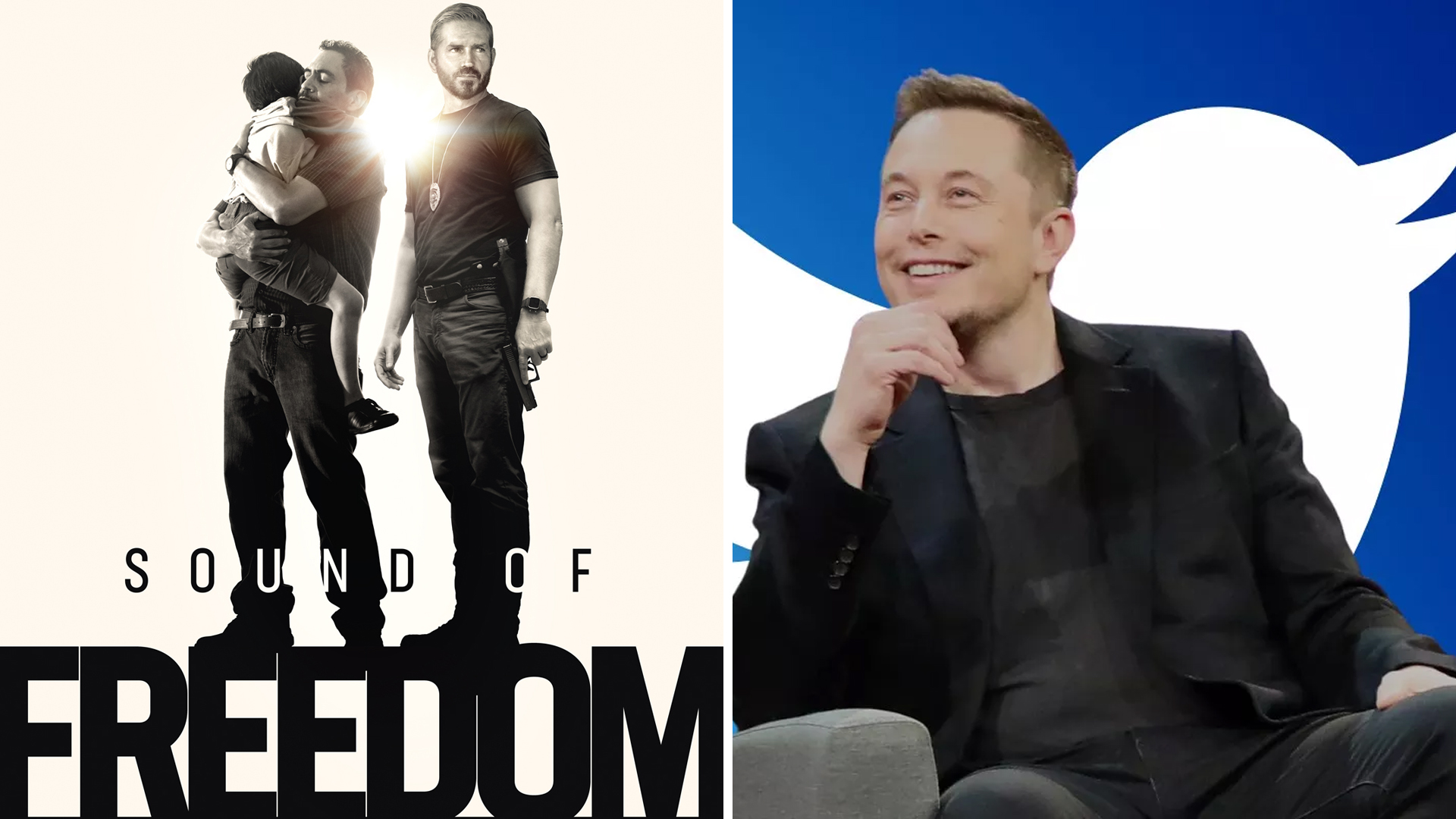In a move that is bound to spark both excitement and controversy, Twitter CEO Elon Musk has announced that the platform will stream the anti-woke film ‘Sound Of Freedom’ to a global audience. This decision marks a significant moment in the ongoing cultural conversation surrounding woke culture, censorship, and freedom of expression. Let’s dive into the details and explore the various dimensions of this unprecedented move.
The Film: ‘Sound Of Freedom’
‘Sound Of Freedom’ is based on the true story of federal agent Tim Ballard’s mission to save children from child sex traffickers in Colombia. Despite achieving success at the box office, grossing $41.7 million in its first week, the film has drawn criticism from various liberal media outlets.
Some publications, such as the New York Times and Los Angeles Times, have refused to review the film, while others like Rolling Stone and CNN have openly criticized it. This backlash seems to stem from the perception that the film takes an anti-woke stance, challenging progressive ideas and values.
Elon Musk: A Bold Decision
Elon Musk, a figure known for his audacious entrepreneurial endeavors and willingness to challenge the status quo, took to Twitter to announce that the platform would stream ‘Sound Of Freedom’ globally. In a tweet that instantly went viral, Musk declared, “Art should be free from censorship. We’ll stream ‘Sound Of Freedom’ for the world to see.”
This move is in line with Musk’s history of championing free speech and transparency. He has previously expressed concern over censorship and the suppression of different viewpoints, particularly in the tech industry.
The Potential Impact
Musk’s decision is likely to resonate in several ways:
- Challenging Woke Culture: By streaming a film labeled as “anti-woke,” Musk is directly challenging what some perceive to be an increasingly intolerant and homogenized cultural landscape.
- Freedom of Expression: By offering a platform to a film that has faced resistance from various media outlets, Musk is emphasizing the importance of diversity of thought and the freedom to express different viewpoints.
- Business Implications: This move could have significant business implications for Twitter. While it might attract those who feel that their voices are being suppressed, it could also alienate users who disagree with the film’s message or Musk’s stance.
- Global Conversation: By making the film available to a global audience, Musk is ensuring that the conversation around woke culture, censorship, and freedom of expression extends beyond national boundaries.
Reactions and Controversy
As expected, the announcement has triggered a wave of reactions across social media and beyond. Supporters applaud Musk for taking a stand against censorship and promoting free speech. Detractors, however, argue that this move promotes a divisive and controversial message.
Some critics have questioned whether Twitter, as a social media platform, should be involved in distributing films at all, especially those with a clear political stance. Others worry about the precedent this sets for tech CEOs having the power to influence cultural discourse.
Conclusion
Elon Musk’s decision to stream ‘Sound Of Freedom’ on Twitter is more than just a business move; it’s a powerful statement in a deeply polarized cultural moment. The move highlights the ongoing tension between the ideals of free speech and the realities of a society grappling with complex and often conflicting values.
Regardless of personal opinions on the film or the broader issue of woke culture, Musk’s decision ensures that these conversations will continue to be had on a global scale. In a world where technology and social media are increasingly shaping our cultural landscape, this move serves as a reminder that the power to influence and shape dialogue rests not only with traditional media but also with tech giants and the platforms they control.
The true impact of this decision may take time to unfold, but one thing is clear: The conversation around ‘Sound Of Freedom,’ woke culture, and the role of tech platforms in shaping cultural discourse has been brought to the forefront, and it’s a conversation that’s likely to continue long into the future.

